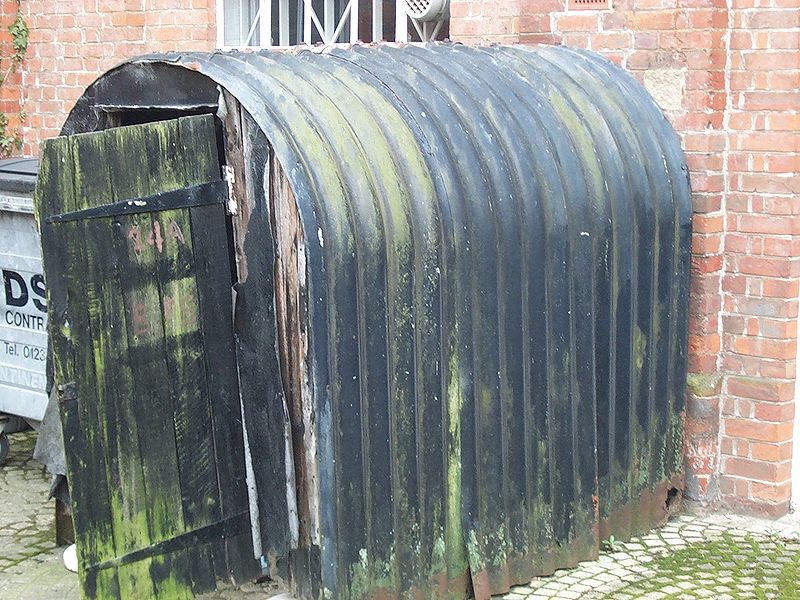This week is the seventieth anniversary of Big Week, five days of bombing, 20--5 February 1944, the greatest single victory in the history of the USAF.
But, first, some introductory remarks, because Big Week had an introduction, too. One will encounter persons, who will remain nameless here, who imagine that the strategic air campaign against Germany as the vain and futile culmination of a virtually entirely theoretical approach to war, or perhaps a cult, or perhaps some kind of self-interested pursuit of institutional (that is) air force interests.
But Big Week had an introduction, and I shall introduce it.
For a few months after I graduated for the last time and had occasion to understand just how much society actually valued the skills that it had so generously subsidised my acquiring, I lived in the kind of flop house that a kind-hearted person will run, in a house on a property worth far more than what was left of the carpentry on it. Buildings fall down on their own if they are neglected, except in a magic world where effort and result are decoupled in whatever way we will, just so that it supports whatever thesis we propose.
 |
| Not this, but like it. (It's much nicer now.) Huffington Post |
Which is not to say that houses can't be helped to fall down. I lived there with assorted persons and a sweet-tempered Golden Retriever. One of the persons in and out of that house did not like dogs, so when he was around he put the dog in her little kennel. He was glad to be shut of her, and she was perfectly content in her kennel.
 |
| Anderson bomb shelter, via Wikipedia. |
Close spaces make us feel safe. We dream. We dig, imagining that in depth there is safety.
| Subterranea Brittanica |
This is a postwar picture of the Siemens Schukert works at Nuremberg (credit via Crown), although the corporate identity had been subsumed into their "Bramo" trademark, and then been subsumed again as Bramo's early jet turbines were taken over by BMW.
The raid that destroyed this plant was probably the one of 01/01/1945, of which one website proposes that
This plant was not building gingerbread confections, although the bomb that destroyed it was probably a 4000lb HC "cookie."
Back up a moment, though, to the bomb shelters of Brooklands, which were only effective if people were actually in them. On 4 September, 1940, they were not, as 14 Messerschmitt Bf-110s swept overhead at 1:24pm. A single 250lb bomb punched through the roof of a machine tool shop and detonated on top of a heavy press. A moment later, 83 machinists were dead and 419 were injured. John Terraine's Right of the Line frames this as a raid that "virtually stopped the production of Wellingtons for four days."
I doubt that the survivors framed it that way. On 24 September, a similar low-level raid Bf 109s hit Vickers-Supermarine Southampton, killing 42, injuring 161, and cutting off municipal services. In the bloodless words of the US Strategic Bombing Survey, this would count as the "loss of a day's production." It was also pretty much the Germans using up the opportunity that a change in tactics always presented. Once barrage balloons were shifted from previous priority targets and proper precautions against splinter damage had been taken, these plants would be very difficult to attack so effectively with low-level tip-and-runs.
This had not escaped the attention of the German Air Staff. On 26 September, 1940, 76 Heinkel He 111s and Ju 88s, "accompanied by 60 Me[sic] 110 twin-engined fighters" managed to drop 70 tons of bombs on a one-square-mile area around the works.Vivid eyewitness testimony describes how a loft where completed wings above a bomb shelter was hit, and how a "blazing tide" of wing ribs followed by burning dope and paint poured into the darkness of the shelter." Most of the 55 killed, although not of the 92 injured, would have been in that shelter (251).
That was the end for Vickers-Supermarine Southampton, as the works were dispersed. All production at the home of the Spitfire was lost for several months, although fortunately by this time Castle Bromwich was in full production. Even after dispersed manufacture was in full swing, it was calculated in another context that there would have been a loss of 20% of labour on fighter manufacture. (February 1944, 75.) It would have been worse for bomber manufacture, although, fortunately for the RAF, the great Midlands bomber plants that made the Halifax and Lancaster did not have to be dispersed. The German Air Force was never strong enough to make precision daylight attacks into the Midlands, and had instead to resort to area night-bombing campaigns that strove, as second-best to paralyze the general industrial life of a city.
In Big Week, the USAAF did that. (Also, Bomber Command did a fine job of coordinating its night attacks on the "Big Week" targets. But it wasn't beating the German Air Force. It was trying to avoid it, and had not yet come to terms with the fact that it could not do that any longer. a new technological paradigm was needed, but that toybox was going to be kept locked until the night of June 5/6, for fairly obvious reasons.)


